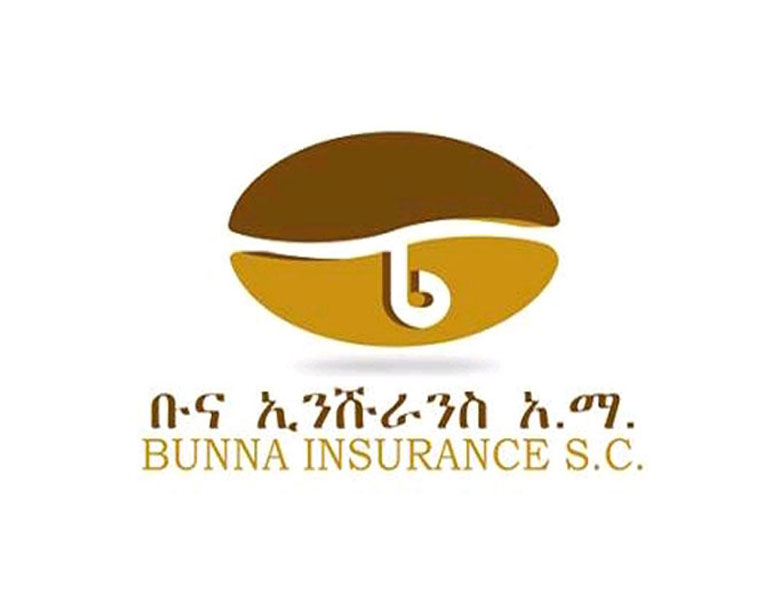
Shareholders of Nib Insurance Company saw returns on shares decline in its operations last year due to sluggish growth in profit and a considerable rise in paid-up capital. The insurance firm's earnings per share (EPS) dropped by nearly 16pc to 149 Br, while the company netted 148.2 million Br in profits, exhibiting a marginal two percent growth from the previous year.
The firm had registered 145.2 million Br in profits in 2019/20, a 39pc jump from the preceding year.
Though the ambivalent performance may be a source of displeasure for Nib Insurance's 1,014 shareholders, shareholders say the result was not as bad as he had feared. Yitbarek Mengiste is among these shareholders who own 42,000 Br in shares.
“It's unrealistic to expect consistent performance from financial firms at a time when business is slow,” said Yitbarek.
One of the 18 insurance firms, Nib was established in 2002 with equity raised from 658 shareholders. The firm’s paid-up capital stood at nearly half a billion Birr in June 2021, 20.4pc higher than the figure from the year prior. The drop in return on shares is partly due to the increase in paid-up capital during the financial year, Fikru Worku, board chairperson of Nib Insurance, said at a shareholders' meeting held at the Sheraton Hotel, on December 11, 2021.
Nib Insurance has a few miles to travel to reach the average capitalisation in the industry of a little over 600 million Br.
The primary culprit behind the firm's stagnant profits and fall in return on shares was the premiums ceded to reinsurers, which jumped by a whopping 81pc to 164 million Br last year. The insurer earned 568 million Br from premiums, marking a 21.3pc growth. The motor class of business accounts for a little over half the amount, followed by the pecuniary and fire classes of businesses, with 14pc and 9.7pc, respectively.
The general insurance business accounts for 89pc of premiums, but Nib recorded a gross premium income of 62.1 million Br from its long-term business. The premiums earned from life insurance increased by a staggering 53.7pc in 2020/21. The spike is analogous to the 67pc growth enjoyed by the industry, which saw life insurance policies generate close to one billion Birr last year. The general insurance business still accounts for most income, standing at 13.8 billion Br.
Premiums ceded to reinsurers caused Nib's retention rate to drop nearly 10 percentage points to 71pc, while its overall loss ratio registered fell to 53pc. Despite this, claims paid and provided for remained steady at 202.8 million Br.
This represents an unsatisfactory performance to Abdulmenan Mohammed, a financial statement analyst based in London.
“Nib Insurance should look into its risk management system," he said.
Zufan Abebe, CEO of Nib Insurance, has a different take. She believes the firm did well in generating commission income from reinsurance companies, amounting to 41.9 million Br.
The motor class accounts for 60pc of total claims paid out by Nib Insurance, followed by pecuniary (23.1pc) and engineering (6.7pc) insurance policies. It also recorded an unflattering performance in its investments, contributing to the slow profit growth and fall in shareholders' returns. The firm's earnings from interest on time deposits, savings and government bonds fell by two percent to 66.7 million Br while dividend income plummeted by 25pc to 40.5 million Br. Time deposits, amounting to 521.2 million Br, account for 27pc of Nib Insurance's assets.
Despite the setback, the firm saw its assets grow to 1.96 billion Br, an increase of 12.1pc. Its cash and bank balances increased by three percent to 72.98 million Br, pushing its total assets ratio to fall to 3.72pc from 4.1pc. It shows that Nib operated with tight liquid resources, according to Abdulmenan.
"This could cause liquidity problems,” he said.
The level of Nib Insurance's capital and non-distributable reserves, which represent 29.6pc of its total assets, warrants the firm to expand its business at the back of a strong capital base, according to the financial expert.
Zufan argues that insurance companies cannot invest more and expand their operations due to requirements put in place by the National Bank of Ethiopia (NBE). Insurance firms are compelled to have a minimum of 60pc of their admitted assets in the form of treasury bills and bank deposits.
A lack of expansions did, however, help Nib Insurance keep its expenditures low. The firm, which operates with 423 staff and 44 branches, registered expenses of 147 million Br, one percent higher than the figure from its operations two years ago.
PUBLISHED ON
Jan 01,2022 [ VOL
22 , NO
1131]

Radar | Apr 08,2024

News Analysis | Mar 09,2024

Viewpoints | Dec 21,2019

Radar | Feb 29,2020

Commentaries | Nov 13,2021

Viewpoints | May 07,2022

Fortune News | Nov 27,2021

News Analysis | Jun 15,2024

Radar | Aug 05,2023

Fortune News | Sep 24,2018

Dec 22 , 2024 . By TIZITA SHEWAFERAW
Charged with transforming colossal state-owned enterprises into modern and competitiv...

Aug 18 , 2024 . By AKSAH ITALO
Although predictable Yonas Zerihun's job in the ride-hailing service is not immune to...

Jul 28 , 2024 . By TIZITA SHEWAFERAW
Unhabitual, perhaps too many, Samuel Gebreyohannes, 38, used to occasionally enjoy a couple of beers at breakfast. However, he recently swit...

Jul 13 , 2024 . By AKSAH ITALO
Investors who rely on tractors, trucks, and field vehicles for commuting, transporting commodities, and f...

Oct 11 , 2025
Ladislas Farago, a roving Associated Press (AP) correspondent, arrived in Ethiopia in...

Oct 4 , 2025
Eyob Tekalegn (PhD) had been in the Governor's chair for only weeks when, on Septembe...

Sep 27 , 2025
Four years into an experiment with “shock therapy” in education, the national moo...

Sep 20 , 2025
Getachew Reda's return to the national stage was always going to stir attention. Once...